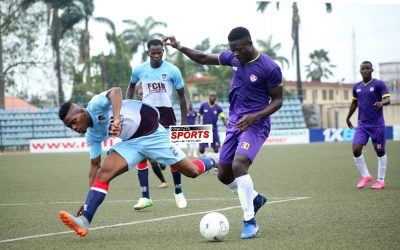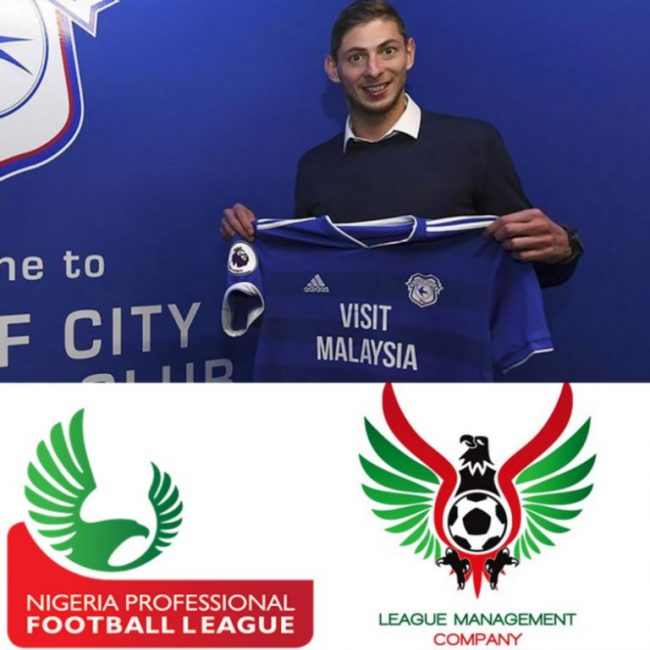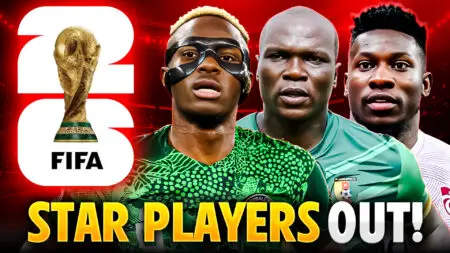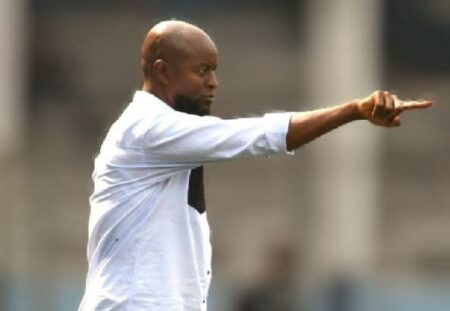By Idorenyin Umoh & Ibidoyin Aina
Introduction
It is no longer news that the football community was jolted with the news of the death of prolific Argentine striker, Emiliano Sala, who was involved in a plane crash en route Cardiff, Wales from Nantes in France for what was, and still remains a Welsh transfer record. Specifically, on the 21st January 2019, the Argentine Forward, who cost the team £15 million, tragically died in a plane crash over the Channel, the sea between England and France.
What is new, however, is that the world’s football governing body, FIFA, on October 30, 2019, directed Cardiff City to pay the first installment of the transfer fees despite the club insisting that the contract is not legally binding. This development comes on the heels of Nantes’ earlier demand to the Welsh club to pay the initial installment; a request that Cardiff has refused and failed to honour. The Bureau of the Players’ Status Committee (PSC) reached a decision on the 25th of September 2019 where it decided that Cardiff City FC is bound by the agreement and is required to pay the transfer fees agreed upon by both parties.
Before now, both parties were involved in a legal wrangle of sorts with Cardiff City extremely reluctant to pay the agreed transfer fees. Cardiff City’s defence was that Nantes’ conditions for completion of the deal were not fulfilled and Sala was not registered as a Premier League player. Nantes, on the other hand, claimed that the required paperwork was completed.
Undoubtedly, Sala’s death has raised pertinent legal issues that would most likely engage lawyers, football intermediaries, athletes especially professional footballers, their employers, and even FIFA. This article seeks to examine in great detail, some of the legal issues that have been raised by this development and why any potential decision by the Court of Arbitration for sports would swing one way or the other. Nantes then brought an action against Cardiff before FIFA, claiming the transfer fee for the player.

The Issues
Reading through the arguments and thoughts of some of the respected legal minds in the sports industry, it appears there is some unanimity on what the issues are. The answers to this myriad of legal issues have been as expected, divergent. The main questions which even the most brilliant legal minds have struggled to answer are as follows:
(1) Is there a legally binding and enforceable agreement between Sala and Cardiff City? and if so
(2) What does that agreement say?
If there is no legally binding and enforceable agreement, then Cardiff City will not be required to pay the transfer fee because Sala would still be a Nantes player.
Cardiff City’s lawyers are undoubtedly looking into whether there is any basis for them to argue that the agreement (if there is one) is not legally binding. If there is a legally binding agreement in place, then we would need to know what the parties have agreed in order to answer the question.
Also Read: The Emerging Trend of eSports; Legal Considerations And The Nigerian Perspective
In football contracts, some player transfer agreements are signed but are conditional upon the player passing a medical (i.e. the fee won’t be payable if the player doesn’t pass a medical). Whilst we concede that this appears to be the established practice with most European and South American clubs, the prevailing jurisprudence on the issue is that such contracts are null and void. This was the decision of the Court of Arbitration for Sports in Kuwait Sporting Club v Z & FIFA where the CAS panel adjudicating the case summarily affirmed that a condition precedent to the validity of contract requiring a successful medical examination shall be considered null and void. In this case, a professional football player and a football club from Kuwait signed an employment contract subject to a successful medical examination. Shortly thereafter, the player was taken out in the middle of a match and was taken to the hospital where an MRI of his knee was done. After the MRI exam, the Player was informed by the Club that his knee was in a very bad condition and the club subsequently terminated his contract due to chronic knee injury. They claimed that the contract is subject to a successful medical examination and that the club was unable to complete the medical examination prior to when the injury occurred. However, the CAS panel emphasized that a condition precedent in the contract requiring a successful medical examination is invalid. This decision is distilled from the provisions of article 18.4 of the RSTP. The underlying rationale of FIFA’s RSTP is to protect football players from “abusive” invocation of injury claims after signing of the contract. Football players who have signed a contract with a club will, in good faith, believe they have entered into a new professional relationship will thus agree to cancel their existing contract with their former clubs or forego the opportunity to negotiate with other potential clubs.
If this is the plank of Cardiff City’s argument, such an argument would not resonate with FIFA and the CAS on the principle established in the Kuwait Sporting Club case.
There may also be specific provisions in the agreement dealing with the death of Sala that affects whether and how much of the fee is payable. Without seeing the agreement, it’s impossible to give a definitive view. It would be very surprising if Cardiff did not take out insurance to cover such risks, so ultimately, while Cardiff City may have to pay out the full fee, it’s likely that they will put in an insurance claim for that transfer fee. This is, however, not the thrust of the present article.
The arguments appear to revolve around the validity of the contract and whether same is legally binding on Cardiff City to require the club to pay the transfer fee to Nantes FC. For the Sala deal to have been valid, four criteria needed to be fulfilled as follows:
i) Register with the FA of Wales – as a Welsh club, the Bluebirds come under the Football Association of Wales, FAW jurisdiction for the signing of players, as opposed to the English FA, even though they play in the Premier League. Accordingly, all new signings of Cardiff City have to be registered with the FAW under Article 5 (1) of FIFA Regulations on the ‘Status and Transfer of Players before they are eligible to participate in organized football.
ii.) International Transfer Certificate – this is what the FAW would have provided once clearance was agreed between themselves, the Ligue de Football Professionnel (who run the game in France), Cardiff and Nantes.
iii.) Premier League registration – Even if the above had happened, Cardiff still required the official go-ahead from the Premier League for Sala to play. That was not given and forms a key plank of the whole dispute.
iv.) Personal terms – The loophole centres around Sala’s personal terms. For a transfer to become valid, player personal terms have to be concluded. It, however, appears that this was not agreed with Salah’s delegation.
Emiliano Sala, we understand had asked for his sign-on fees to be paid 100 percent upfront and had signed a contract, but the Premier League said it was invalid. The Premier League insisted that until personal terms are agreed with the player, there was no valid contract. Cardiff was told to renegotiate with Sala on those terms. Until that happened, he couldn’t be registered to play in the Premier League.
Accordingly, Sala was NOT eligible to play for the Bluebirds in their next game which was away to Arsenal before his ill-fated flight.
Jurisprudential Lessons From the Sala Case for Nigerian Football league
It is not the intention of the authors to critically appraise the decision of the world football governing body. The pith of this article is to examine the valuable lesson of this tragedy which has assumed commercial proportions. Therefore, an attempt will be made to provide valuable recommendations to sports teams desirous of hedging potential risks inherent in their standard player contracts and how to avoid them. In the meantime, it is pertinent to identify the main reasons for this drafting oversight by some sports teams, especially in Nigeria.
As stated in the immediately preceding paragraph, most of the drafting issues are caused by the obligation imposed on the teams by certain regulations to use the standard player contracts usually contained in the appendices to the Rules. An obvious example is Form 7 of the appendices to the NPFL Rules in Nigeria which predetermine the clauses to be contained in player contracts. Admittedly, these clauses are insufficient for the purposes of addressing the myriad of issues that could potentially arise between a player and his club. Unfortunately, clause 18 of the contract provides that the contents of the standard form contract shall constitute the whole agreement between the club and the player. This, we respectfully opine is wrong as it effectively fetters the powers of the club to insert and insist on certain clauses that will limit its liability in the event of a scenario similar to the Emiliano Sala scenario. The Clubs in England and mainstream Europe enjoy a wider latitude in drafting their contracts.
Also Read: The Right to Use Images of Athletes for Commercial Purposes – Gold Mine or Undermined?
Secondly, most of the teams particularly in Nigeria and sub-Saharan Africa lack sufficient legal advice in drafting and even reviewing the contracts entered into with their players. Until a few years ago when the League Management Company of Nigeria came on board, there was no regulation in the football structure of the league. Drafting and executing a legally binding and enforceable agreement with their players was a chore for Nigerian football teams. Thankfully, the regulation introduced with the NPFL Framework Rules addressed the issue of documentation to a considerable extent. However, most of the teams would rather engage an ad hoc personnel who would simply reproduce what is in the appendices to the Rules without advising on the risk factors inherent in the contract. It is no secret that most Nigerian sports teams do not have external solicitors who advice on some of these issues. Perhaps, this is due to the level of commercial consciousness of the teams. At best, they employ an in-house lawyer who oversees their documentation. While this may be appealing for economic reasons, it could prove very costly in the long run.
The solutions to the problems highlighted above are very simple. First, the teams should be given the latitude to include all the conceivable clauses relevant in hedging most of these risks. The standard contracts should be the minimum requirements and not the entire template. Insisting on strict conformity with the standard form contracts without providing for such likely scenarios would simply expose the clubs to bigger risks and liability. Whilst it is unlikely that a player transferring from a certain club would be involved in a plane crash en route another Nigerian City. What happens where for instance, a player dies from a road accident on his way to sealing a transfer deal with another Nigerian club? Would it be fair to hold the transferee club liable for the transfer fees where the standard form contract failed to capture such eventuality? This is where some drafting flexibility and dexterity would be required and this takes us to the next solution in addressing this dilemma.
Force majeure clauses – Force majeure clauses deal with how to address contractual obligations when a triggering event affects the obligation of the parties. Good contract drafters must consider various issues that could trigger a force majeure provision.
In professional football contracts entered into amongst the elite clubs in Europe, there appears to be glaring neglect of the inclusion of the force majeure clause by drafters and also football clubs and agents across Europe and Africa. While the average contract lawyer is clearly familiar with force majeure provisions and assumes as a routine manner, the negotiation and drafting of an agreeable clause to that effect, very few include this clause in their contracts nor have they argued actual litigation arising from such disputes. The authors are not aware of any recorded case in football circles where a dispute on the applicability of a force majeure clause arose for determination.
The general principle of the clause is that a party to an agreement should not be liable for the non-performance of its obligations due to an unexpected event outside its control.
One cannot, however, benefit from force majeure if it is not expressly included in the agreement. It thus cannot be automatically applied upon the occurrence of an event. A party to a contract desirous of pleading the defence of force majeure would have to expressly insert the clause in a contract. Cardiff city’s ‘deafening’ silence on this principle simply shows that it was not part of the contract with Emiliano Sala. It would not suffice to simply define what amounts to force majeure; the contracting clubs also need to provide for what is to happen if an event of force majeure occurs and as a result, one party is prevented from performing the contract. The obvious consequence is that the agreement comes to an end with the party in default not being liable to the other party.
The writers suggest that the inclusion of the Force Majeure Clause in player agreements going forward might serve as a cushion for circumstances as in the instant case. The LMC and other regulators of Nigerian teams are advised to urgently review their standard form contracts by providing for these clauses. At the same time, the various sports teams and clubs should be given some latitude in drafting their standard contracts. This way, they are allowed to address all the potential risks that may arise in the future.

The various sports teams need to embrace the burgeoning culture of engaging competent external solicitors to review their documentation. This way, potential risk factors in standard form contracts are nipped in the bud.
The death or disability clause – currently, there is no ‘death’ clause in standard player contracts, especially in the NPFL rules. What the NPFL Rules provide for, however, is Permanent or Prolonged Incapacity – under clause 8 of the standard form contract. This clause entitles a club to unilaterally terminate the contract of a player who has been injured or otherwise unable to play for a period amounting in the aggregate to 18 months consecutively. This clause is distilled from a combined reading of Articles 13, 14 and 17 of the FIFA RSTP which provides for termination on the ground of sporting just cause. Whereas Article 13 provides the general rule, Article 14 is the exception that allows either party to terminate on justifiable grounds. Article 17 of the RSTP determines the monetary and sporting consequences of terminating a contract without just cause, particularly compensation for breach of contract and a possible ban on registering new players, either nationally or internationally, for a certain period of time. Unfortunately, a combination of all these is insufficient to address the scenario raised in the Sala case since they contemplate existing contracts and would be unhelpful to protect a transferee club trying to avoid the obligation. It is suggested therefore that the clubs consider inserting the ‘death clause’.
Also Read: The Professional Athlete as an Employee Within The Context of The NPFL Rules
What is the “death or disability clause”? This is to the effect that where a player dies or suffers a career-ending disability, such occurrence will automatically translate to the termination of the agreement. The clause may further explain what a career-ending disability will mean specifically to the terms of the instant contract.
The clause is a mere suggestion for drafters. However, the main aim is to protect against unforeseeable occurrences like the instant case. This case would perhaps serve as the reference point for football clubs going forward and also for drafters of football agreements which will revolutionize sports contract drafting as a whole.
References
1. https://www.skysports.com/app/transfer/news/12691/11611105/emiliano-sala-completes-medical-as-move-to-cardiff-draws-closer
2. https://www.potentialplusuk.org/index.php/2019/03/26/footballs-legal-dilemma-the-emiliano-sala-case-by-benjamin-s-aged-10/.
3. See Gary D. Way, Sudden Death: League Labor Disputes, Sports Licensing and Force Majeure Neglect, 7 MARQ. SPORTS L.J. 427 (1997) (citing Random House Legal Dictionary 101 (1st ed. 1996))
4. Id. at 427.
5. Id. at 440-44.
6. Id. at 454-56.
7. Id. at 427.
8. Bouchard Transp. Co. v. N.Y. Islanders Hockey Club, 836 N.Y.S.2d 654 (App. Div. 2007)
9. Kuwait Sporting Club v. Z. & FIFA, CAS 2008/A/1593, https://arbitrationlaw.com/sites/default/files/free_pdfs/CAS%202008-A-
10. https://gowlingwlg.com/en/insights-resources/articles/2018/force-majeure-clause-in-contracts/?utm_source=Mondaq&utm_medium=syndication&utm_campaign=View-Original
11. https://www.walesonline.co.uk/sport/football/football-news/cardiff-city-emiliano-sala-contract-15941596
12. https://www.potentialplusuk.org/index.php/2019/03/26/footballs-legal-dilemma-the-emiliano-sala-case-by-benjamin-s-aged-10/
Idorenyin Umoh and Ibidoyin Aina are both Sports lawyers and Associates in the Sports & Entertainment law team of Perchstone and Graeys LP, Lagos.
(08077408900, 08104964413)







1 Comment
One of the best and my favorite blog ever.